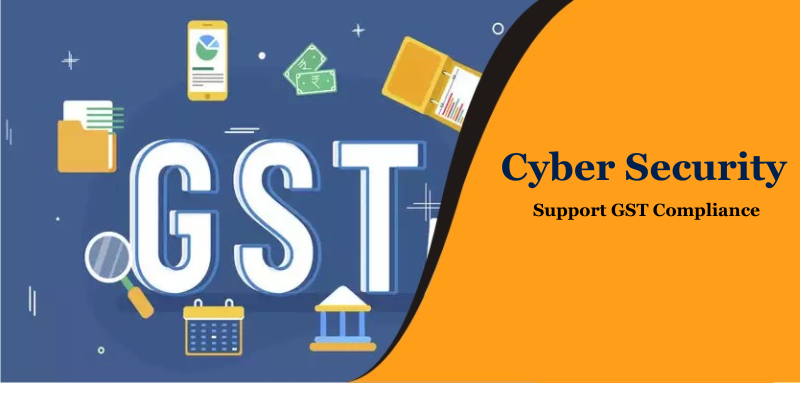In an increasingly digital economy, the importance of Cyber Security cannot be overstated, especially for businesses dealing with regulatory frameworks like the Goods and Services Tax. As organizations gather and process sensitive financial data, they become prime targets for cyberattacks. Implementing robust Cyber Security measures is essential for ensuring compliance with GST regulations. One of the most effective ways to achieve this is through comprehensive employee Cyber Security training, such as a Cyber Security Course in Chennai. This blog explores how Cyber Security training supports GST compliance and enhances organizational resilience.
Understanding GST Compliance
Goods and Services Tax is a value-added tax applied to the supply of goods and services, and compliance involves various obligations, including accurate filing, timely payments, and maintaining records. Failure to comply with GST regulations can lead to severe penalties, legal repercussions, and damage to a company’s reputation. Given the sensitive nature of financial data involved, businesses must adopt stringent measures to protect this information.
The Role of Cyber Security in GST Compliance
Cyber Security plays a critical role in safeguarding sensitive data related to GST compliance. The financial information processed during GST filing, such as sales figures and invoices, is vulnerable to cyber threats like data breaches, phishing attacks, and ransomware. A strong Cyber Security framework helps mitigate these risks and ensures that organizations can meet their GST obligations without compromising data integrity. To gain more insights about GST enrol now at the GST Training in Bangalore.
How Cyber Security Training Enhances GST Compliance
Raising Awareness of Cyber Threats
Cyber Security training educates employees about various cyber threats that can compromise sensitive financial information. By understanding common threats like phishing, malware, and social engineering, employees become more vigilant and better equipped to identify suspicious activities. This heightened awareness significantly reduces the risk of data breaches that could jeopardize GST compliance.
Promoting Best Practices in Data Handling
Training programs instill best practices for handling sensitive data related to GST compliance. Employees learn how to create strong passwords, securely store financial documents, and recognize potential vulnerabilities in their systems. By promoting these practices, organizations can reduce the likelihood of data loss or theft, ensuring that their GST records remain intact and compliant.
Looking for a rewarding career shift? A role in GST opens doors to vast opportunities in taxation, finance, and compliance. With businesses relying on GST professionals, the demand continues to rise. Why Should It Be Your Next Career Step? It offers stability, career growth, and a chance to stay ahead in the evolving financial landscape.
Encouraging a Security-First Mindset
A culture of security begins with employee training. Organizations prioritising Cyber Security training, such as a Cyber Security Course, foster a security-first mindset among their workforce. This cultural shift encourages employees to protect sensitive information and comply with GST regulations proactively. Employees become more accountable for their actions, creating a more secure organizational environment.
Adapting to Regulatory Changes
GST regulations can evolve, and organizations must adapt accordingly. Cyber Security training can incorporate updates about regulation changes, ensuring that employees understand their responsibilities in light of new compliance requirements. By keeping employees informed, organizations can better navigate the complexities of GST compliance while maintaining robust security protocols.
Enhancing Incident Response Capabilities
A well-trained workforce can effectively respond to a Cyber Security incident to mitigate the impact. Cyber Security training includes incident response protocols, teaching employees to report breaches and take immediate action. This quick response is crucial in protecting sensitive GST-related data and minimizing potential disruptions to compliance efforts.
The Importance of Continuous Training
Cyber Security is a constantly evolving field, with new threats emerging regularly. For this reason, organizations must implement ongoing training programs to keep employees informed about the latest risks and security measures. Continuous training, offered by a Training Institute in Chennai, reinforces the importance of Cyber Security concerning GST compliance and ensures that employees remain vigilant and knowledgeable.
Implementing Effective Cyber Security Training Programs
To maximize the effectiveness of Cyber Security training in supporting GST compliance, organizations should consider the following strategies:
- Tailored Training Modules: Customize training programs to address specific risks related to GST compliance and the organisation’s industry.
- Interactive Learning: Use interactive training methods, such as simulations and quizzes, to engage employees and reinforce their learning.
- Regular Updates: Ensure training materials are updated to reflect the latest Cyber Security trends, threats, and regulatory changes.
- Leadership Involvement: Encourage leadership to participate in training initiatives, which will demonstrate the organization’s commitment to Cyber Security and compliance.
Cyber Security training is vital for organizations striving to maintain GST compliance in a landscape where cyber threats are rampant. By equipping employees with the knowledge and skills to recognize and respond to cyber threats, businesses can protect sensitive financial data and uphold their regulatory obligations. Investing in comprehensive training programs, including GST Training in Chennai, enhances compliance and fosters a culture of security that ultimately benefits the entire organization. As the digital economy continues to evolve, prioritizing Cyber Security training will be essential for navigating the complexities of GST compliance and safeguarding the future of the business. Also, check out the Training Institute in Bangalore.
Also Check: What Are the Key Components of Goods and Services Tax?



